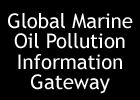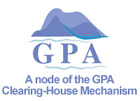 "It must be remembered that catastrophes,
in spite of the obvious consequences and all the attention they
attract, are inferior to other sources of oil pollution in their
scales and degree of environmental hazard. Land-based oil-containing
discharges and atmospheric deposition of products of incomplete
combustion ... these diffuse sources continuously create relatively
low but persistent chronic contamination over huge areas. Many
aspects of chemical composition and biological impacts of these
contaminants remain unknown." (Stanislav Patin, in the
book: Environmental Impact of the Offshore Oil and Gas Industry)
"It must be remembered that catastrophes,
in spite of the obvious consequences and all the attention they
attract, are inferior to other sources of oil pollution in their
scales and degree of environmental hazard. Land-based oil-containing
discharges and atmospheric deposition of products of incomplete
combustion ... these diffuse sources continuously create relatively
low but persistent chronic contamination over huge areas. Many
aspects of chemical composition and biological impacts of these
contaminants remain unknown." (Stanislav Patin, in the
book: Environmental Impact of the Offshore Oil and Gas Industry)
 "Oil spills can have long-lasting and devastating effects
on the ocean environment, but we need to know more about damage
caused by petroleum from land-based sources and small watercraft
since they represent most of the oil leaked by human activities."
- - - "Oil slicks visible from the air and birds painted
black by oil get the most public attention, but it is consumers
of oil, not the ships that transport it, who are responsible
for most of what finds its way into the ocean. For example,
oil runoff from cars and trucks is increasing in coastal areas
where the population is growing and roads and parking lots
are expanding to accommodate it. Rivers polluted by oil in
waste water or the improper disposal of petroleum products
are a significant source of oil in the sea as well."
(Report in 2002 by the National Research Council (NRC)
Committee on Oil in the Sea: Inputs, Fates, and Effects)
"Oil spills can have long-lasting and devastating effects
on the ocean environment, but we need to know more about damage
caused by petroleum from land-based sources and small watercraft
since they represent most of the oil leaked by human activities."
- - - "Oil slicks visible from the air and birds painted
black by oil get the most public attention, but it is consumers
of oil, not the ships that transport it, who are responsible
for most of what finds its way into the ocean. For example,
oil runoff from cars and trucks is increasing in coastal areas
where the population is growing and roads and parking lots
are expanding to accommodate it. Rivers polluted by oil in
waste water or the improper disposal of petroleum products
are a significant source of oil in the sea as well."
(Report in 2002 by the National Research Council (NRC)
Committee on Oil in the Sea: Inputs, Fates, and Effects)
 "... comes from human activities: street runoff, industrial
waste, municipal wastewater and wastewater from refineries.
- - - Small dribs and drabs add up to a very large amount
- - - Obviously, there's a great concentration of cars, there's
a greater concentration of the use of petroleum and you have
a lot of paved surfaces." (Comment of one member of
the Committee)
"... comes from human activities: street runoff, industrial
waste, municipal wastewater and wastewater from refineries.
- - - Small dribs and drabs add up to a very large amount
- - - Obviously, there's a great concentration of cars, there's
a greater concentration of the use of petroleum and you have
a lot of paved surfaces." (Comment of one member of
the Committee)
 " ... that a considerable part of oil pollution of the
marine environment is caused by oil contaminated waters discharged
via storm water systems...". (Baltic Sea Helsinki
Commission)
" ... that a considerable part of oil pollution of the
marine environment is caused by oil contaminated waters discharged
via storm water systems...". (Baltic Sea Helsinki
Commission)
 "Dispose of used oil, antifreeze, paints, and other household
chemicals properly, not in storm sewers or drains. Clean up
spilled brake fluid, oil, grease, and antifreeze. Do not hose
them into the street where they can eventually reach local
streams and lakes". (U.S. EPA)
"Dispose of used oil, antifreeze, paints, and other household
chemicals properly, not in storm sewers or drains. Clean up
spilled brake fluid, oil, grease, and antifreeze. Do not hose
them into the street where they can eventually reach local
streams and lakes". (U.S. EPA)
 "Pollution comes from visible sources such as oil spills,
but many little known sources have big impacts, as well. Polluted
runoff is the most pervasive of these, carrying oil, litter,
fertilizers and other pollutants to the oceans". (The
Ocean Conservancy:Polluted Runoff)
"Pollution comes from visible sources such as oil spills,
but many little known sources have big impacts, as well. Polluted
runoff is the most pervasive of these, carrying oil, litter,
fertilizers and other pollutants to the oceans". (The
Ocean Conservancy:Polluted Runoff)
 It is a fact that the big oil spills account for a considerably
smaller total annual input than the constant, diffuse input
from land-based sources. These daily, never-ending additions
to the oil load on oceans and coastal areas is not dramatic.
It does not kill seabirds, fish, shellfish or marine mammals
within a few days, it does not cause large-scale destruction
of beaches, it cannot be as brutally seen or felt as large oil
slicks from ships or offshore oil wells. It is difficult to
blame anyone in particular for the continuous"leakage"
of oil from streets and rivers, like the large-scale marine
"recreational" oil pollution caused by pleasure craft,
because the blame falls on each and everyone of us.
It is a fact that the big oil spills account for a considerably
smaller total annual input than the constant, diffuse input
from land-based sources. These daily, never-ending additions
to the oil load on oceans and coastal areas is not dramatic.
It does not kill seabirds, fish, shellfish or marine mammals
within a few days, it does not cause large-scale destruction
of beaches, it cannot be as brutally seen or felt as large oil
slicks from ships or offshore oil wells. It is difficult to
blame anyone in particular for the continuous"leakage"
of oil from streets and rivers, like the large-scale marine
"recreational" oil pollution caused by pleasure craft,
because the blame falls on each and everyone of us.
 Oil discharged with untreated or insufficiently treated
municipal sewage and stormwater — urban runoff —
comes from cars, machinery, spills at filling stations and
garages, flushed-out residues of lubricants, etc. The stormwater
contains waterborne and airborne pollutants; everything that
is flushed onto or falls down upon the hard surface will become
constituents of the contaminated stormwater: car exhausts,
particles from worn tyres, small spills of oil from engines
of different vehicles, small oil spills from garages, workshops,
residues of oils and lubricants that we want to get rid of.
Oil discharged with untreated or insufficiently treated
municipal sewage and stormwater — urban runoff —
comes from cars, machinery, spills at filling stations and
garages, flushed-out residues of lubricants, etc. The stormwater
contains waterborne and airborne pollutants; everything that
is flushed onto or falls down upon the hard surface will become
constituents of the contaminated stormwater: car exhausts,
particles from worn tyres, small spills of oil from engines
of different vehicles, small oil spills from garages, workshops,
residues of oils and lubricants that we want to get rid of.
 Oil also enters the marine environment with untreated or
insufficiently treated waste water or stormwater from various
coastal facilities: coastal industries, coastal refineries,
coastal oil storage facilities, oil terminals, and reception
facilities. Untreated stormwater from ports, refineries, oil
storage facilities, oil terminals etc. especially oil terminals,
has a high oil content that originates from valves, pumps,
loading ramps for vehicles, quays, etc.
Oil also enters the marine environment with untreated or
insufficiently treated waste water or stormwater from various
coastal facilities: coastal industries, coastal refineries,
coastal oil storage facilities, oil terminals, and reception
facilities. Untreated stormwater from ports, refineries, oil
storage facilities, oil terminals etc. especially oil terminals,
has a high oil content that originates from valves, pumps,
loading ramps for vehicles, quays, etc.
 People pour untreated waste water and residues directly into
rivers and the rivers bring the pollution, including
the oil, to the sea.
People pour untreated waste water and residues directly into
rivers and the rivers bring the pollution, including
the oil, to the sea.
 Consequently, a lot of oil goes literally down the drain from
our towns and cities into the sea — either through a
municipal sewage treatment plant, where it will harm the treatment
process, or more or less untreated. When streets, roofs, handling
areas in ports, and other hard surfaces are washed by rain
and snow, the resulting waste water (stormwater) is flushed
into the general sewer system or into storm drains along roadsides.
If the sewage treatment is adequate, the stormwater and municipal
sewage will both be treated. If no treatment plant exists,
or treatment facilities are inadequate, the sewage, including
the stormwater, will be discharged into the sea more or less
uncleaned.
Consequently, a lot of oil goes literally down the drain from
our towns and cities into the sea — either through a
municipal sewage treatment plant, where it will harm the treatment
process, or more or less untreated. When streets, roofs, handling
areas in ports, and other hard surfaces are washed by rain
and snow, the resulting waste water (stormwater) is flushed
into the general sewer system or into storm drains along roadsides.
If the sewage treatment is adequate, the stormwater and municipal
sewage will both be treated. If no treatment plant exists,
or treatment facilities are inadequate, the sewage, including
the stormwater, will be discharged into the sea more or less
uncleaned.
|


